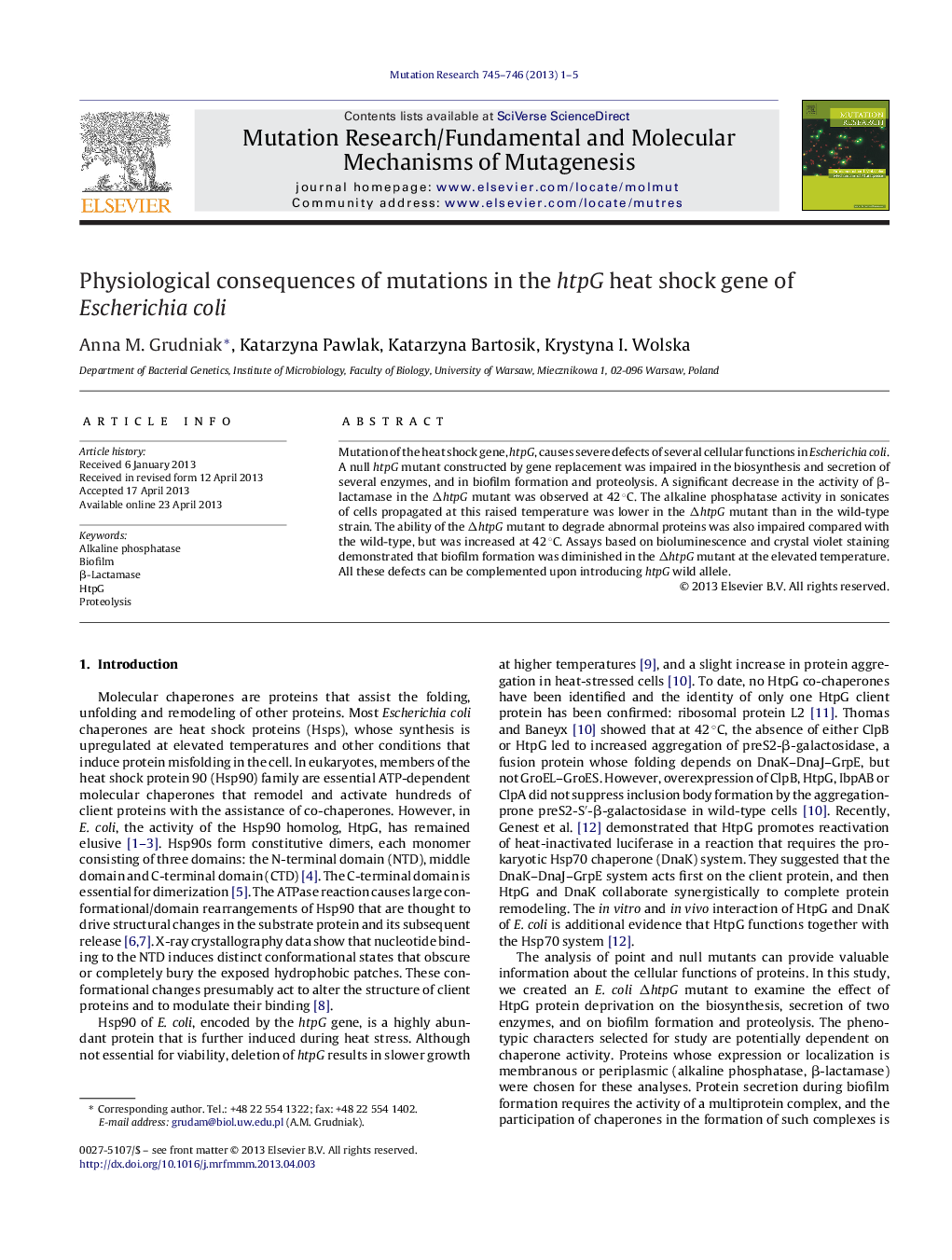| Article ID | Journal | Published Year | Pages | File Type |
|---|---|---|---|---|
| 2146392 | Mutation Research/Fundamental and Molecular Mechanisms of Mutagenesis | 2013 | 5 Pages |
•Our study demonstrated the involvement of HtpG in several cellular functions.•HtpG enhances the synthesis (stability) of β-lactamase and alkaline phosphatase, but inhibits alkaline phosphatase translocation.•HtpG also enhances degradation of canavanine containing proteins.•It is also involved in biofilm formation.•The defects ΔhtpG mutant was seen in elevated temperature 42 °C.
Mutation of the heat shock gene, htpG, causes severe defects of several cellular functions in Escherichia coli. A null htpG mutant constructed by gene replacement was impaired in the biosynthesis and secretion of several enzymes, and in biofilm formation and proteolysis. A significant decrease in the activity of β-lactamase in the ΔhtpG mutant was observed at 42 °C. The alkaline phosphatase activity in sonicates of cells propagated at this raised temperature was lower in the ΔhtpG mutant than in the wild-type strain. The ability of the ΔhtpG mutant to degrade abnormal proteins was also impaired compared with the wild-type, but was increased at 42 °C. Assays based on bioluminescence and crystal violet staining demonstrated that biofilm formation was diminished in the ΔhtpG mutant at the elevated temperature. All these defects can be complemented upon introducing htpG wild allele.
